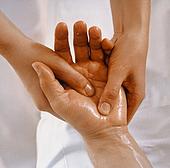Introduction
For many older folks, transferring to a nursing home means a complete upheaval of their life. Family, environment, daily routine, and even diet can see drastic changes during that transition period. While the emotional tolls can take up a patient’s entire focus, there are many smaller concerns when moving that can accumulate into large problems. Dehydration in nursing homes, for instance, is something that is commonly overlooked, despite the fact that as many as 90% of nursing home patients are at risk of being dehydrated. For example, patients admitted to hospitals are 10 times more likely to be dehydrated if they are coming from a nursing home.
Many nursing home residents simply cannot get enough hydration through oral consumption of water. This is because hydration is not necessarily the same as an individual’s water intake. Hydration is the water intake into the cells, which are transported through the vitamins and minerals, some of which aren’t possible to get from diet and water alone. Because vitamins and nutrients vary person to person, patients need more acute care which is often not seen.
Consequences
But the potential repercussions and increased risks of prolonged dehydration cannot be taken lightly. A mere 5% reduction in water leads to hydration, which interferes with a cell’s ability to balance intracellular and extracellular fluids. As a result of the decreased fluids, cells steal water from organs and put it into the bodies bloodstream. This leads to worsening moods, higher levels of fatigue, reduced cognitive functions, and a more withdrawn attitude toward social situations. While the symptoms may be minor, dehydration affects over half of nursing home residents. This can culminate in comorbidities and a greater risk of early death.
Above all else, the greatest proprietor of dehydration is age. Older patients have less effective kidney functions, meaning they need more water to balance their electrolytes. Another consequence of age is being less in tune with your body. This means your body is not always able to signal the need for thirst. And, even if you are able to recognize your need for water, some patients are unable to communicate the desire for water. Sometimes due to cognitive decline.
However, the deteriorating health as a result of age also indirectly increases the chances of dehydration. Health conditions that can decrease potassium levels or elevate sodium levels can necessitate even more to achieve proper hydration. Not to mention medications like anti-diabetics, anticonvulsants, and antidepressants which are known to deplete fluids and increase dehydration risk.
Solution
Fortunately, Dript IV Therapy has come up with a solution that bridges the gap between nutrition and fluids to achieve proper hydrations in users. Dript IV bags were developed with the support of trusted, veteran clinicians, who aimed to find the right balance of nutrition to support hydration. By delivering the fluids and electrolytes vitamins intravenously, it effectively reverses the detriments seen by short- or long-term dehydration. The primary purpose of the fluids is to rebalance the intracellular fluid and stop excess secretion by the organs. Once this is achieved, it helps to stabilize and standardize the level of oral hydration required by the patient on a daily basis.
But hydration is not the only benefit of the Dript IV bags for you. For instance, the amino acid blend, glutathione, and vitamin B5 supports injured and immunocompromised patients by warding off infections. Additionally, those with chronic wounds see relief because of the bag’s biotic, zinc, and amino acid content. The improved hydration and supplemental nutrition even help to improve the cognitive of patients with cognitive impairments. Those without cognitive impairments see increased cognitive function and reduced risk of cognitive decline from the taurine and glycine.
Ultimately, Dript IV bags are perfect for keeping your hydration in check while filling in your nutritional gaps. Whether you’re new to the nursing home or a long-term resident, Dript IV bags are the best way to keep make your hydration worries go away.

Source: DriptIV.com




